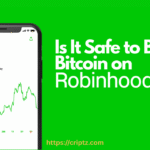Buying Bitcoin has become increasingly mainstream, and many users now turn to mobile apps and digital banking platforms to invest. One of the most popular platforms for this is Revolut, a UK-based financial technology company offering crypto trading alongside its standard banking services. But with convenience comes the big question: is it safe to buy Bitcoin on Revolut? Let’s break it down.
Why Choose Revolut for Bitcoin?
Revolut’s integration of cryptocurrency trading into its digital banking app makes it accessible for beginners. You can buy Bitcoin using fiat currencies in your Revolut account with just a few taps, avoiding the need to navigate complex crypto exchanges. However, convenience comes with trade-offs, such as higher fees compared to dedicated exchanges and limited control over your assets.
Regulatory Compliance and Security
Revolut is regulated in the UK and European Economic Area (EEA), adhering to stringent financial laws. It employs bank-level security, two-factor authentication (2FA), and data encryption to protect user accounts. In 2023, Revolut received full authorization to operate as a crypto asset firm in the UK, which adds an additional layer of trust and legitimacy. This regulatory oversight ensures that users are not dealing with a rogue platform.
Security Measures Employed by Revolut
Revolut employs several security measures to protect users’ cryptocurrency assets, as outlined in their official documentation:
- Multi-Signature Wallets and Cold Storage: Revolut uses multi-signature wallets, requiring multiple private keys to authorize transactions, and stores most assets in cold storage, keeping them offline to reduce hacking risks.
- Third-Party Custodians: Cryptoassets are held in virtual accounts, often managed by third-party custodians appointed by Revolut. While users lack a direct contractual relationship with these custodians, this is a common industry practice to ensure asset segregation.
- Financial Crime and Sanctions Checks: Revolut conducts rigorous checks on deposits and withdrawals to prevent financial crime, which may result in transactions being frozen or blocked if they fail to meet compliance standards.
- Service Suspension for Security: Revolut may suspend services for technical upgrades or security improvements, with efforts to notify users, especially in emergencies.
Despite these measures, Revolut has faced security challenges. In 2022, a social engineering attack compromised over 50,000 customer records, including email, phone, and card data. In 2023, a cyber attack reportedly resulted in a $20 million loss. These incidents underscore that while Revolut has robust protocols, vulnerabilities exist. Additionally, Revolut’s terms state they are not liable for losses from withdrawals or deposits to external wallets, particularly if users provide incorrect addresses or deal with unsupported assets. Transactions are irreversible, so diligence is critical.
| Security Measure | Details | Potential Risks |
|---|---|---|
| Multi-Signature Wallets | Requires multiple keys for transactions, enhancing security. | Limited user control over keys. |
| Cold Storage | Keeps assets offline to reduce hacking risks. | Dependent on third-party custodians. |
| Financial Crime Checks | Prevents illicit activities but may delay or block transactions. | Can frustrate users with legitimate transactions. |
| Non-Liability for Losses | Users bear responsibility for incorrect wallet addresses. | Risk of loss due to user error. |
Custodianship of Bitcoin
While Revolut allows users to buy, sell, and hold cryptocurrencies like Bitcoin, it’s important to understand that you don’t own the private keys to your coins unless you transfer them to an external wallet. This means your Bitcoin is custodially held by Revolut or its partners. For those who believe in “not your keys, not your crypto,” this can be a drawback in terms of ownership and full control.
Ease of Use and Speed
One of Revolut’s main selling points is its user-friendly interface. Buying Bitcoin through the app is incredibly simple, often taking less than a minute. You can buy fractions of Bitcoin, set price alerts, and use recurring buy features—all within a single app that also handles your everyday banking. For beginners, this streamlined process offers a low barrier to entry into crypto investing.
Fees and Spread
Revolut charges a fee on crypto transactions—typically between 1.5% to 2.5%, depending on your plan. Unlike traditional crypto exchanges, these fees may not always be transparent, as Revolut includes a spread in the exchange rate. While this is common among fintech apps, frequent traders may find the costs higher compared to using dedicated crypto exchanges like Binance or Coinbase.
Limited Crypto Functionality
Until recently, Revolut users couldn’t withdraw Bitcoin to external wallets. However, Revolut now allows crypto withdrawals for verified users, albeit with some limitations. The feature is not available in all countries and only supports a select number of cryptocurrencies. This marks a step toward decentralization, but still falls short for advanced users who want full control over their assets.
Insurance and Risk Management
Revolut does not insure your crypto holdings through the Financial Services Compensation Scheme (FSCS). This means that if Revolut were to go bankrupt or suffer a breach, your crypto may not be protected in the same way as your fiat deposits. While Revolut partners with third-party custodians who implement strict security protocols, there is still inherent risk—as with any centralized platform.
User Experiences and Reviews
User feedback from platforms like X and Reddit reveals a mixed picture of Revolut’s crypto services. Many users praise the platform’s ease of use, with the ability to buy Bitcoin in a few taps being a significant draw. However, several concerns have emerged:
- Lack of Control Over Private Keys: A post by @lopp on X criticized Revolut’s claim of giving users “complete control” over their crypto, noting that assets are managed by Revolut, aligning with the crypto adage “not your keys, not your crypto.” This means users rely on Revolut’s security rather than having direct ownership.
- Transaction Holds and Account Blocking: Users like @Night__Nomad on X reported frustrations with transaction blockers when transferring funds to crypto exchanges, leading some to close their accounts. Others have noted delays or holds due to compliance checks.
- Customer Support Issues: Complaints about customer support are common, with @Colonthreee alleging a $4,000 loss due to inadequate oversight in Revolut’s use of automated systems for support. A BBC article also highlighted a user’s negative experience with a crypto transfer, feeling “powerless” due to limited recourse.
- Security Breaches: The 2022 social engineering attack and 2023 $20 million cyber attack, reported by @cz_binance and @TheHackersNews, respectively, have raised concerns about Revolut’s vulnerability to sophisticated attacks.
Despite these issues, some users report successful experiences, particularly with withdrawing Bitcoin to external wallets, which Revolut supports in regions like the EU. However, limitations or issues with withdrawals have been noted, and users are advised to verify current policies.
Should You Buy Bitcoin on Revolut?
If you value convenience and are comfortable with Revolut holding your Bitcoin, it can be a relatively safe option. However, for those prioritizing full control and lower fees, transferring Bitcoin to a personal wallet or using a dedicated exchange like Binance or Coinbase may be preferable. Always research thoroughly and consider your risk tolerance before investing.
Final Verdict: Is It Safe?
So, is it safe to buy Bitcoin on Revolut? Yes—for casual users and beginners, it’s a secure and regulated platform offering an easy way to gain exposure to Bitcoin. However, for more advanced users or long-term holders, the lack of private key ownership and limited functionality may be significant drawbacks. If you’re just starting and looking for a low-effort way to invest in Bitcoin, Revolut is a solid option. But if you value decentralization and control, consider transferring your assets to a private crypto wallet.
Frequently Asked Questions
Is Revolut safe for Bitcoin?
Revolut implements strong security measures—cold storage, multi-signature custodians, biometric access, transaction monitoring, and optional selfie-verified crypto transfers—which generally make it safe to buy Bitcoin on the platform. However, it’s a custodial service: you don’t control the private keys, have limited withdrawal capabilities, and your crypto isn’t protected like regulated assets. Anecdotal reports also warn of account freezes, lost funds, and poor support—so it’s safer for casual trading, not for long-term storage.
Can Bitcoin be purchased on Revolut?
Yes, you can purchase Bitcoin through Revolut’s app. Revolut supports buying and selling Bitcoin (along with 200+ other cryptocurrencies) directly via its “Crypto” or “Wealth” section—simply navigate to “Trade,” select Bitcoin, specify the amount, and confirm.
Is Revolut safe for buying?
Revolut can be safe for buying—but it depends on what you’re purchasing and how you use it. For regular purchases, Revolut applies standard protections like PCI-DSS compliance, encryption, and biometric access, and as an FCA-authorised e-money institution, it safeguards client funds in segregated accounts. However, the platform has faced criticism for limited fraud reimbursement, account freezes, and support issues. For low-risk, day-to-day spending, Revolut is generally reliable—but it’s wise to remain cautious with large sums or complex transactions.
Are Revolut crypto fees high?
Revolut’s crypto fees are generally high, especially for casual users:
- Standard users pay about 1.49% per trade (or a minimum flat fee), and could incur an extra 0.5% if monthly crypto trading exceeds £1,000, plus a hidden spread of around 1%—bringing total costs to 2–3% per transaction.
- Even Premium or Metal subscribers (0.99%) often face spreads pushing effective fees into the 3–5% range—which many users have flagged as misleading.
- While Revolut’s new “X” app offers significantly lower fees (e.g. zero spread + ~0.09% fees), this is separate from the main app.
In short: unless you’re on a high-volume plan or using Revolut X, Revolut’s crypto fees are relatively steep compared to dedicated exchanges.
Is Revolut safe from hackers?
Revolut employs robust security measures to safeguard user accounts. These include strict identity verification, biometric authentication, and real-time fraud detection systems. In 2024 alone, its financial crime team protected customers from over €746 million in potential fraud . However, users should remain vigilant against phishing attacks and scams, as some customers have reported unauthorized transactions despite these protections.
Alexander Lorenzo is a seasoned crypto educator at Criptz, Alexander contributes high-quality educational content aimed at helping both new and experienced users understand the evolving world of blockchain and cryptocurrency. He continues to be a trusted voice in the industry, offering clarity in a fast-moving market. Whether you’re just starting or looking to sharpen your skills, his content delivers real value.
Why Trust CRIPTZ?
At criptz.com, we bring you up-to-the-minute cryptocurrency news and expert analysis in 2025. Our seasoned team delivers accurate coverage of market trends, blockchain breakthroughs, and emerging innovations, backed by strict editorial standards. With 24/7 reporting on price movements, regulations, and tech advancements, we empower traders and investors to navigate the fast-paced crypto world with confidence. Count on Criptz.com for trustworthy insights into digital assets.



![Do Bitcoin Addresses Expire [Complete 2025 Guide]](https://criptz.com/wp-content/uploads/2025/08/Do-Bitcoin-Addresses-Expire-Complete-2025-Guide-150x150.png)



